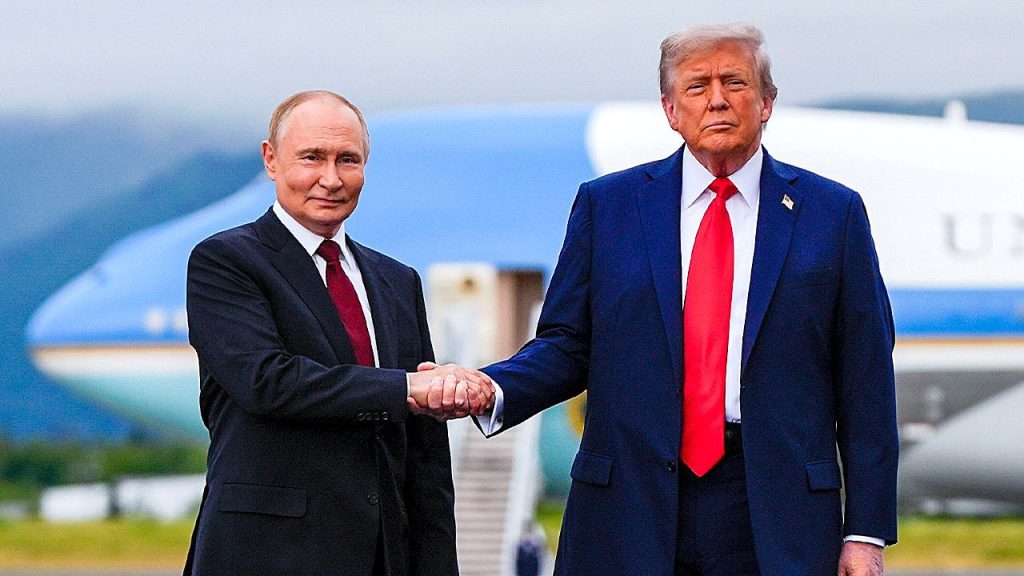Putin Praises Trump’s Peace Efforts After Nobel Prize Snub
In a surprising show of international recognition, Russian President Vladimir Putin recently commended former U.S. President Donald Trump for his global peace initiatives, specifically highlighting Trump’s role in brokering a ceasefire between Israel and Hamas. Speaking at a summit in Dushanbe, Tajikistan, where he met with leaders from former Soviet states, Putin acknowledged Trump’s contributions to resolving long-standing international conflicts. “He’s really doing a lot to resolve such complex crises that have lasted for years and even decades,” Putin remarked, offering rare praise from a leader who has often had a complex relationship with the United States.
The Russian leader’s comments came in direct response to a question about whether Trump had been unfairly overlooked for the Nobel Peace Prize, which was awarded instead to Venezuelan opposition leader María Corina Machado. Putin seemed to suggest that the Nobel committee’s decision-making process lacked consistency and merit, stating, “There have been cases where the committee has awarded the Nobel Peace Prize to people who have done nothing for peace.” He continued with a thinly veiled criticism of the selection process: “A person comes — good or bad — and [gets it] in a month, in two months — boom. For what? He didn’t do anything at all.” Putin concluded his critique by asserting that such decisions have “done enormous damage to the prestige of this prize,” reflecting his view that the Nobel Peace Prize may have become politicized rather than recognizing genuine achievements in conflict resolution.
Trump himself seems to have anticipated this outcome, having expressed skepticism about his chances of receiving the Nobel Prize despite his administration’s peace initiatives. During a September address to military leaders in Quantico, Virginia, Trump referenced his administration’s accomplishments in conflict resolution, claiming, “If this works out, we’ll have eight — eight in eight months. That’s pretty good. Nobody’s ever done that.” However, he quickly added with characteristic bluntness, “Will you get the Nobel Prize? Absolutely not.” Trump’s prediction proved accurate when the prize was awarded to Machado, a democracy activist who has faced significant challenges in her opposition to Venezuela’s authoritarian regime.
The situation highlights an interesting dynamic in international relations where even traditional adversaries like Putin recognize specific diplomatic achievements of American leaders. Trump’s administration did oversee several significant diplomatic breakthroughs, including the Abraham Accords, which normalized relations between Israel and several Arab nations, as well as his efforts toward peace negotiations in the Korean Peninsula. The acknowledgment from Putin suggests that regardless of political differences, certain diplomatic initiatives can earn recognition across geopolitical divides. This transcends typical partisan boundaries and demonstrates how peace efforts can be valued even by those with whom the United States has tense relationships.
The Nobel Peace Prize has long been a subject of controversy, with critics questioning whether selections are sometimes driven more by ideological alignment than by actual achievements in promoting global peace. Trump’s supporters have pointed to his administration’s concrete diplomatic successes in contrast to what they view as more symbolic or aspirational selections by the Nobel committee in the past. Putin’s comments seem to align with this criticism, suggesting that the prize may not always recognize the most significant contributions to global peace and stability. This critique raises larger questions about how peace efforts are recognized and rewarded on the world stage, and whether international institutions adequately acknowledge diplomatic breakthroughs that occur outside their preferred frameworks.
Despite the Nobel snub, Trump’s peace initiatives remain part of his presidential legacy, with the Israel-Hamas ceasefire being one of the more recent examples cited by Putin. The Russian leader’s comments offer an interesting counterpoint to domestic American political discourse, where Trump’s foreign policy has often been viewed through a partisan lens. That an international figure like Putin would publicly acknowledge these efforts suggests that, beyond domestic political battles, certain diplomatic achievements can be recognized for their impact regardless of who accomplished them. As global conflicts continue to evolve, the assessment of which leaders truly advance the cause of peace—and how they should be recognized for those efforts—remains a complex question that transcends simple political categories or institutional awards.


